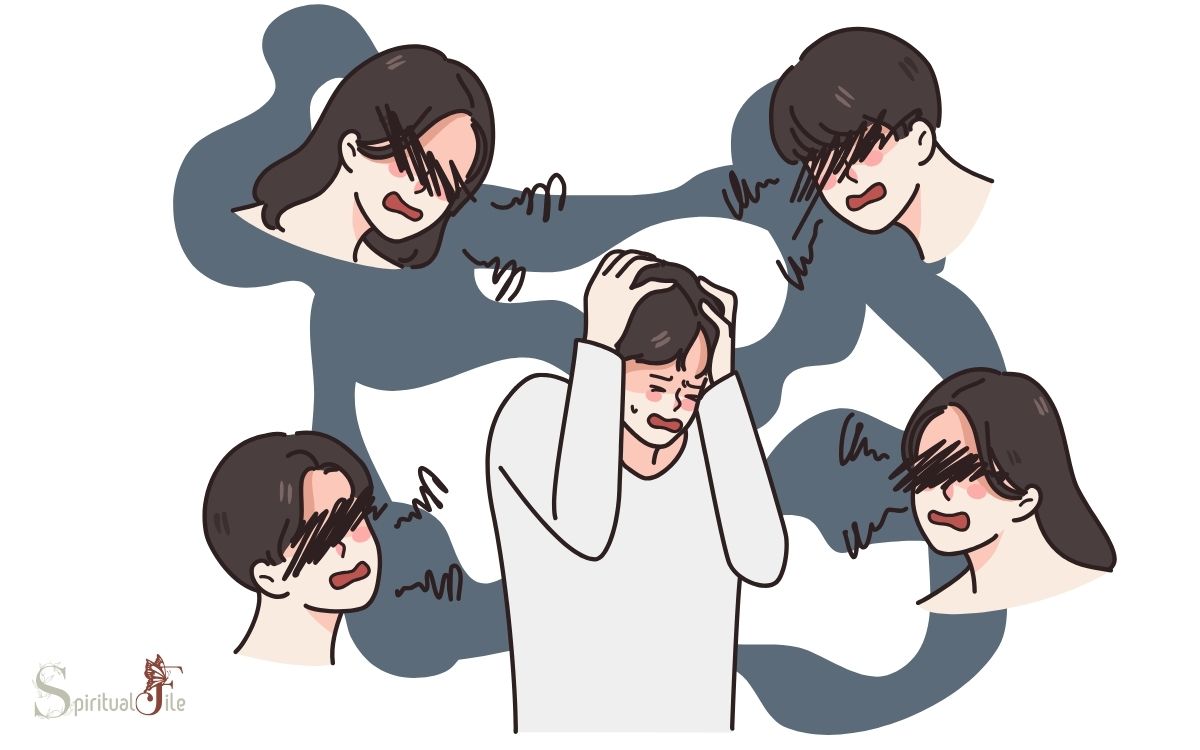Borderline Personality Disorder and Spirituality: Emotions!
Borderline Personality Disorder (BPD) is a complex mental health condition characterized by intense emotions, unstable relationships, and a distorted self-image.
Individuals with BPD may experience spirituality in unique ways, sometimes seeking solace and meaning through spiritual practice or experiencing spiritual crises due to their emotional volatility.
Borderline Personality Disorder affects the way individuals think about themselves and others, leading to difficulties in managing emotions and maintaining relationships.
Spirituality can be an important aspect for some individuals with BPD, offering a framework for understanding their place in the world.
Spirituality may:
For example, a person with BPD may find that engaging in a spiritual community helps them establish a sense of belonging and stability, while for another, intense spiritual experiences might contribute to emotional upheaval.
Exploring spirituality can be a double-edged sword for those with Borderline Personality Disorder, as it may bring profound peace or add to emotional turmoil.

Key Takeaway
Understanding Borderline Personality Disorder
Understanding Borderline Personality Disorder can be challenging due to its complex and multifaceted nature. As someone who has struggled with this disorder, I know firsthand the confusion and frustration it can cause.
The intense emotions, unstable relationships, and distorted self-image can be overwhelming. It’s important to recognize that individuals with Borderline Personality Disorder are not simply “overreacting” or “being dramatic”; their experiences are valid and deeply impactful.
This disorder is rooted in a combination of genetic, environmental, and neurological factors, making it a legitimate mental health condition that requires understanding and support.
By acknowledging the complexities of Borderline Personality Disorder, we can move towards greater empathy and effective methods of support for those navigating the challenges it presents.
The Role of Spirituality in BPD
Navigating Borderline Personality Disorder can be particularly challenging due to its multifaceted nature, and spirituality has played a significant role in my personal journey with this disorder.
Spirituality as a Source of Comfort
- Turning to prayer, meditation, or spiritual rituals has provided me with a sense of peace during moments of emotional turmoil.
- Connecting with a higher power has given me a renewed sense of hope and purpose, especially during difficult times.
Guidance and Support from Spiritual Communities
- Engaging with like-minded individuals in spiritual communities has offered me a sense of belonging and understanding.
- The teachings and principles of my faith have provided me with valuable guidance in managing my emotions and relationships.
Integrating spirituality into my life has been a crucial aspect of my BPD recovery, offering solace, guidance, and a sense of community.
Spiritual Practices for Coping
Incorporating spiritual practices such as mindfulness meditation and journaling has been instrumental in my coping strategies for managing the challenges of borderline personality disorder.
Mindfulness meditation helps me stay present and reduce emotional reactivity, allowing me to observe my thoughts and feelings without judgment. It has taught me to approach my emotions with compassion and acceptance, rather than impulsivity.
Journaling provides a safe space for me to express my thoughts and emotions, helping me gain insight into my triggers and behaviors.
Through these practices, I have learned to cultivate a sense of inner peace and stability, which has been crucial in managing the intense emotions that come with BPD.
While these practices may not be a cure, they have significantly improved my ability to cope with the daily struggles of borderline personality disorder.
Mindfulness and BPD Management
Practicing mindfulness has been a foundational tool in managing the symptoms of borderline personality disorder (BPD), allowing me to cultivate a greater sense of self-awareness and emotional regulation.
Through mindfulness, I’ve learned to observe my thoughts and feelings without judgment, which has helped me navigate intense emotions more effectively.
Additionally, mindfulness has enabled me to develop a deeper connection with the present moment, reducing anxiety about the future and rumination about the past.
- Mindfulness has empowered me to respond to triggers with intention rather than impulsivity, fostering healthier relationships and interactions.
- It has also provided me with a sense of grounding during moments of emotional turmoil, offering a reprieve from overwhelming feelings.
Meditation and Inner Healing
Engaging in meditation has been a vital component of my journey in managing borderline personality disorder, providing a deeper level of inner healing and emotional stability.
Through meditation, I’ve learned to observe my thoughts and emotions without judgment, allowing me to cultivate a greater sense of self-awareness and control over impulsive reactions.
This practice has also helped me develop a more compassionate and accepting attitude towards myself and others, reducing the intensity of my emotional responses.
Additionally, meditation has been instrumental in soothing my anxiety and reducing the frequency of intense mood swings, creating a more balanced inner state.
By integrating meditation into my daily routine, I’ve found a profound sense of inner peace and resilience that has significantly contributed to my overall well-being and ability to navigate the challenges of living with borderline personality disorder.
Connecting With Higher Powers
Through my journey with borderline personality disorder, I have found solace and guidance by connecting with higher powers.
This connection has provided me with a sense of comfort and purpose, helping me navigate the turbulent emotions and thoughts that often accompany this disorder. In my experience, connecting with higher powers has been a deeply personal and spiritual practice.
It has allowed me to find strength and resilience in times of distress, and has provided a sense of grounding and stability amidst the chaos.
Through this connection, I have learned to cultivate a greater sense of self-awareness and acceptance, leading to a more profound understanding of myself and my place in the world.
Ways I Connect with Higher Powers:
- Prayer
- Meditation
How Higher Powers Help Me:
- Finding peace and comfort
- Providing guidance and clarity
Integrating Spirituality Into Treatment
In my journey with borderline personality disorder, I have found that integrating spirituality into treatment has been a pivotal aspect of my healing process.
Incorporating spiritual practices such as mindfulness meditation, prayer, and connecting with nature has provided me with a sense of inner peace and resilience.
My therapist and I have worked collaboratively to integrate these spiritual elements into my treatment plan, recognizing the profound impact they have on my overall well-being.
By combining evidence-based therapeutic techniques with spirituality, I have developed a deeper understanding of myself and have learned to manage my emotions more effectively.
This integration has not only contributed to my personal growth but has also enhanced my ability to cope with the challenges associated with borderline personality disorder.
Conclusion
Spirituality can play a significant role in coping with borderline personality disorder. For example, I once worked with a client who found solace in meditation and prayer to manage their intense emotions and impulsive behaviors.
By integrating spirituality into their treatment, they were able to find a sense of peace and inner healing that traditional therapies alone could not provide. It’s important to recognize the potential benefits of incorporating spirituality into BPD management.






